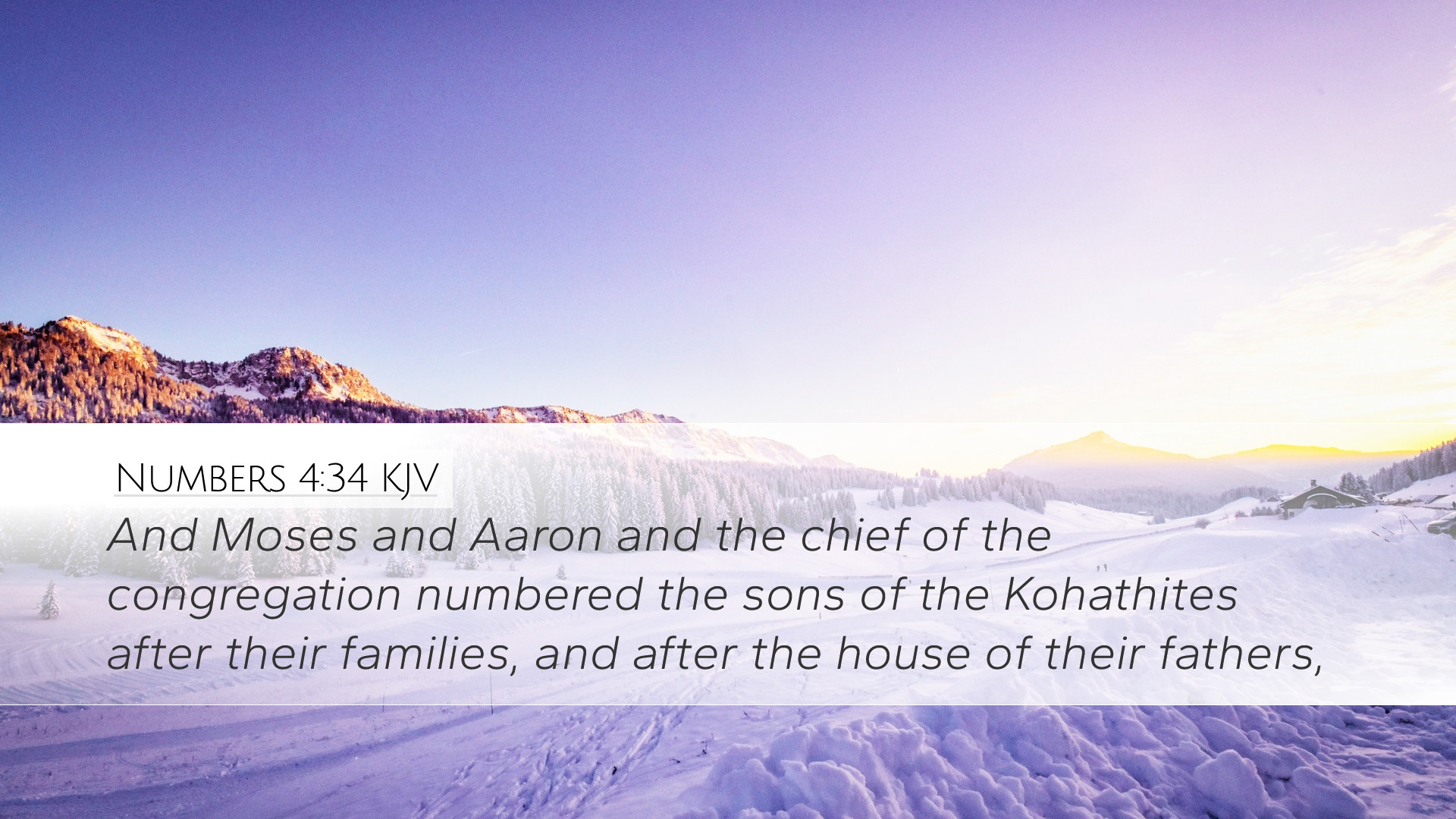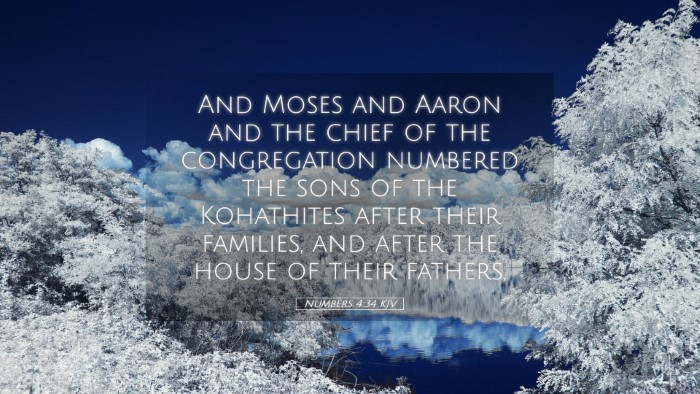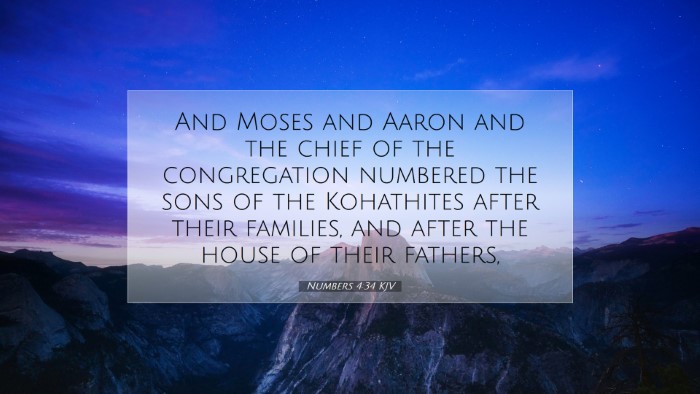Commentary on Numbers 4:34
Numbers 4:34 states: “And Moses and Aaron and the chief of the congregation numbered the sons of the Kohathites after their families, and after the house of their fathers.” This verse, while seemingly straightforward, holds profound significance in the context of Israelite worship and the structure of their community.
Contextual Analysis
To fully grasp the meaning of Numbers 4:34, it is essential to consider the context within the book of Numbers. This book describes the organization of the Israelites during their wanderings in the wilderness, capturing how God ordered His people. The passage relates to the Kohathites, a division of the Levites responsible for the care of the most sacred objects of the Tabernacle.
Commentary Insights
Moses' Leadership
Matthew Henry emphasizes the leadership role of Moses and Aaron in this verse. It is noteworthy that their authority is not merely administrative but is divinely ordained. Their numbering of the Kohathites illustrates their commitment to fulfilling God’s commands concerning service and consecration. Moses is portrayed not just as a leader, but as one who actively engages in the spiritual and physical organization of the people.
Significance of the Kohathites
Albert Barnes provides insight into the Kohathites' role among the Levites. The Kohathites were entrusted with carrying the most holy furnishings of the tabernacle, including the ark of the covenant, the table of showbread, and the lampstand. Barnes highlights the gravity of this responsibility, indicating that the Kohathites were not only custodians of these sacred items but were also intimately engaged in the worship of Yahweh. This verse symbolically illustrates the importance of organization and roles within the community of faith.
Family and Heritage
Adam Clarke notes the emphasis on familial and tribal structures that is woven throughout this verse. The text mentions the Kohathites after their families and houses, highlighting the significance of lineage and divine allocation of roles. Clarke argues that recognizing and honoring these familial ties is essential for understanding one’s identity within the covenant community. Each family had a specific duty that contributed to the overall wellbeing of the Israelites, reinforcing the notion that every individual and family plays a role in the larger narrative of God's redemptive history.
Theological Themes
- Divine Order: This verse reaffirms God's desire for order among His people. The precise numbering and organization of the Kohathites reflect His nature as a God of order, who desires His people to approach worship with reverence and structure.
- Consecration and Service: The Kohathites' role in transporting the sacred items teaches about the seriousness of service to God. Their dedication is a call for all believers to recognize the sacredness of their roles within the church and to approach their service with humility and diligence.
- Community and Identity: The familial structure mentioned suggests that identity in the community of faith is interwoven with communal responsibilities. Each individual contributes to the health and mission of the church, reflecting the body of Christ’s interdependence.
Applications for Today
For pastors, students, theologians, and scholars, this verse pushes one to reflect on the nature of leadership and service in the church today. The importance of spiritual leadership, as modeled by Moses and Aaron, persists through time. Likewise, understanding that every member of the congregation has a role that contributes to the ministry can encourage deeper involvement and commitment to God’s work.
Furthermore, this text invites a consideration of how we organize ourselves in worship and service. Are we approaching our calling with the same earnestness and reverence as the Kohathites? The call for consecration before God is timeless and should inspire contemporary believers to seek holiness in their service.
Conclusion
In summary, Numbers 4:34 encapsulates significant theological truths about divine order, leadership, and community identity within the body of Christ. The insights provided by public domain commentaries such as those by Matthew Henry, Albert Barnes, and Adam Clarke encourage modern readers to delve into the implications of the verse for personal faith and communal life. As we reflect on this passage, let us be inspired to recognize our roles and the sacred responsibility we carry in being part of God's people.


